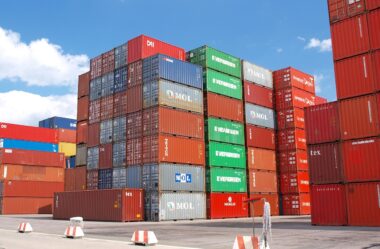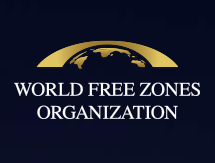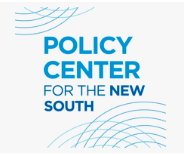Tempo de leitura: 5 minutos
The European Union’s single market of 500 million consumers looking for quality goods and services and 21 million small and medium-sized enterprises (SMEs) is the World’s most ambitious trade co-operation and the biggest player on the global trading scene. This is the main reason why European Union considered as one of the world’s best regions to do business. The European Union is the world’s biggest trading block, accounting for 16.5 % of the world’s imports and exports. Free trade among its members was one of the European Union’s founding principles and it is committed to liberalizing world trade as well. The EU is the world’s biggest exporter of manufactured goods and services and it is the biggest import market for over 100 countries.
Special Free Economic Zones in the European Union
Many countries around the world have set up free trade and economic zones as a way to accelerate the economic development of regions, manage post-industrial property and infrastructure, create new jobs and attract foreign investors. Only few European Union member states have Special Free Economic Zones inside the World’s biggest trading block and single market.
According to the number of Special Economic Zones (SEZs) operating in the country, Lithuania is the third in the Western world, after the United States of America and Poland. While SEZs can be found in about 70 percent of developed countries and are mostly customs-free zones to encourage foreign trade, Lithuania is different.
To boost its competitiveness, the Government of EU member state – Lithuania has established special incentives for both foreign and domestic investors. The basic benefit of investing in a Free (Special) Economic Zone is the possibility of obtaining a tax allowance consisting of a corporate income tax exemption. Lithuania’s six Free Economic Zones are located in the country’s economic centres – Marijampolė, Kaunas, Kėdainiai, Panevėžys, Šiauliai, Klaipėda – and provide favourable conditions for developing business by offering ready to build industrial sites for “green field” investments with physical and other infrastructure, support services and tax incentives.
Lithuanian regulation of Special Free Economic Zones
Today, the Lithuanian legal regulation of Free Economic Zones is among the most favorable in Europe, which means that the production companies set up in Lithuanian Free Economic Zones have significant competitive advantage and opens up European single market at a significantly lower production, operational costs. Ranked alongside Ireland, Germany and Switzerland for its business environment, Lithuania can also guarantee a fantastic quality to cost ratio.
According World Investment Report 2019 Special Free Economic Zones are among the most important tools, aiding countries to attract investment. Foreign direct investment flow for 2018 in Lithuania increased by 39%, to 905 million EUR, compared to 2017 figures of 654 million EUR. The situation is different globally, with FDI flows continuing to slide, falling by 13 percent to $1.3 trillion from $1.5 trillion recorded in 2017.
Benefits for the Free Economic Zones investors
– 0% corporate tax for the first 10 years;
– 50% discount on corporate tax over the next 6 years;
– 0% tax on dividends;
– 0% tax on real estate;
– available EU financial incentives.

Free movement of goods, capital, services and labour in the EU
The European Single Market is a single market which seeks to guarantee the free movement of goods, capital, services, and labour within the European Union / European Economic Area. The EU is also a customs union. The countries agree to apply the same tariffs to goods from outside the union. Once goods have cleared customs in one country, they can be shipped to others in the union without further tariffs being imposed.
Freedom of movement allows citizens of the European Union to move to, live in, and in certain circumstances access the welfare system of the European Union country to which they have moved.
Free movement of capital enables a better allocation of resources within the EU, facilitates trade across borders, favours workers mobility, and makes it easier for businesses to raise the money they need to start and grow.
Restrictions on freedom to provide services within the Union are prohibited in respect of nationals of Member States who are established in a State other than that of the person for whom the services are intended. Any discrimination concerning the provision of services on the basis of nationality is prohibited.
Reasons why Lithuania is the best choice for doing business in Europe
The reasons why Lithuania is one of the best countries in European Union for doing business in Europe:
– Looking from the perspective of logistics, Lithuania is a truly convenient country. All European capitals, for instance, can be easily reached from 3 Lithuanian international airports (in Vilnius, Kaunas and Klaipėda) by making a two-three-hours flight and not longer. Rail, sea transportation systems and the road transport system are extremely well-developed in Lithuania as well.
– The highest internet data transfer rate as compared to the rest of the EU and an excellent access to fiber-optic Internet technologies make Lithuania a perfect location for international business.
– Lithuanians speak at least one foreign language, and even a half of the inhabitants of Lithuania speak at least two languages. 80% proficiency in English among young professionals.
– Many qualified and motivated professionals are currently working in Lithuania. For this reason the effectiveness of this country and the quality of life are increasing rapidly.
High rankings granted to Lithuania recently confirms preferable business conditions, good investment possibilities, capacity to create a good well-being of the country:
– 3rd best in 4G Internet coverage in the EU and worldwide (The Digital Economy and Society Index, European Commission, 2020).
– 6th in the EU for ease of paying taxes (PwC Paying Taxes 2020);
– 8th freest economy in the world (Economic Freedom Ratings for 2019, Fraser Institute, 2021).
– 11th position in the World Bank’s Doing Business 2020 report measuring business conditions.
– 18th position in Paying Taxes Ranking 2019, ranked by PwC and the World Bank Group.
– 30th position in IMD World Competitiveness Rankings 2021. This ranking shows how countries are able to harness available resources and competences to increase their well-being.
Fonte: Ecovis ProventusLaw | Foto: Arquivo







Os comentários foram encerrados, mas trackbacks e pingbacks estão abertos.